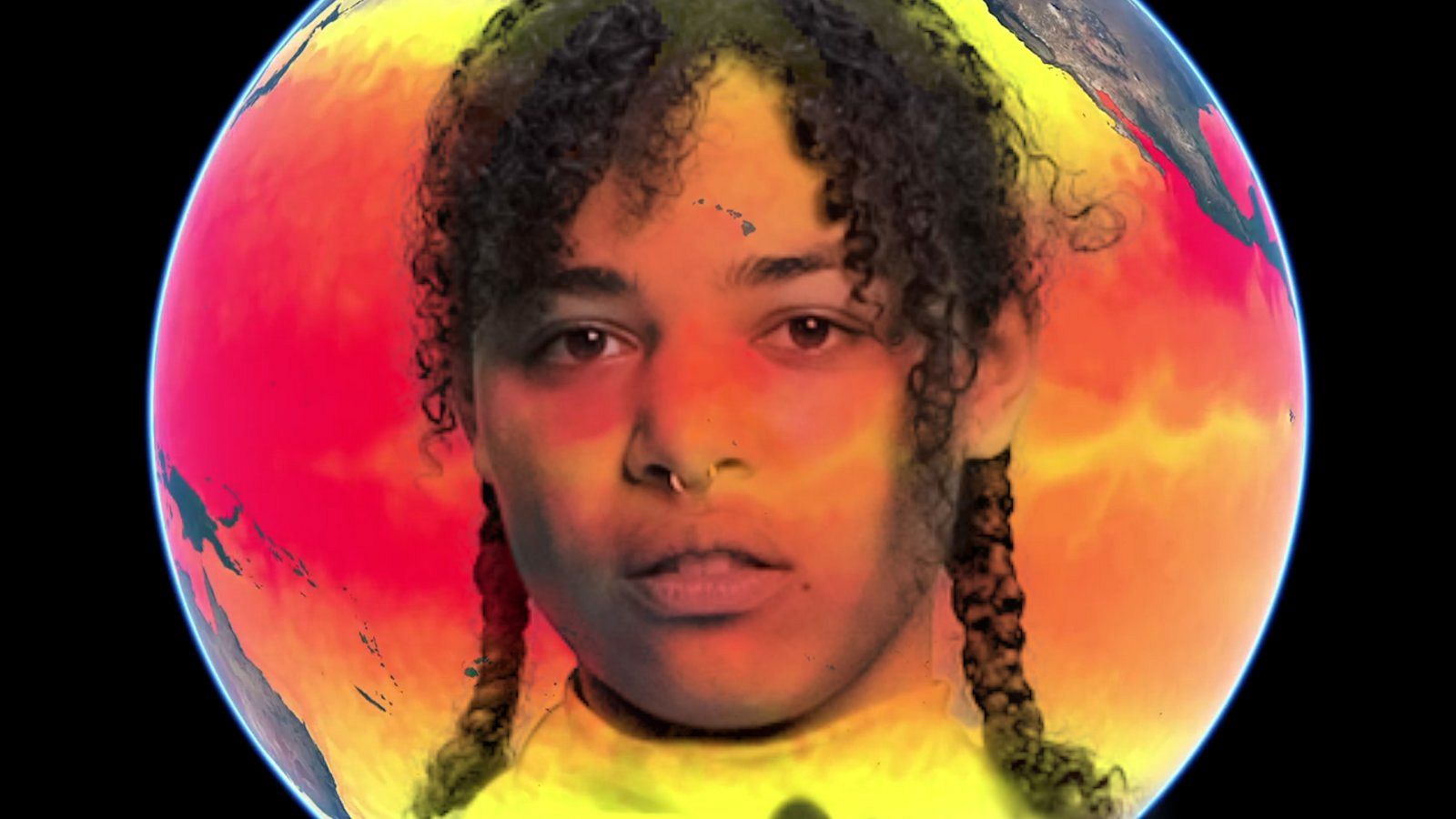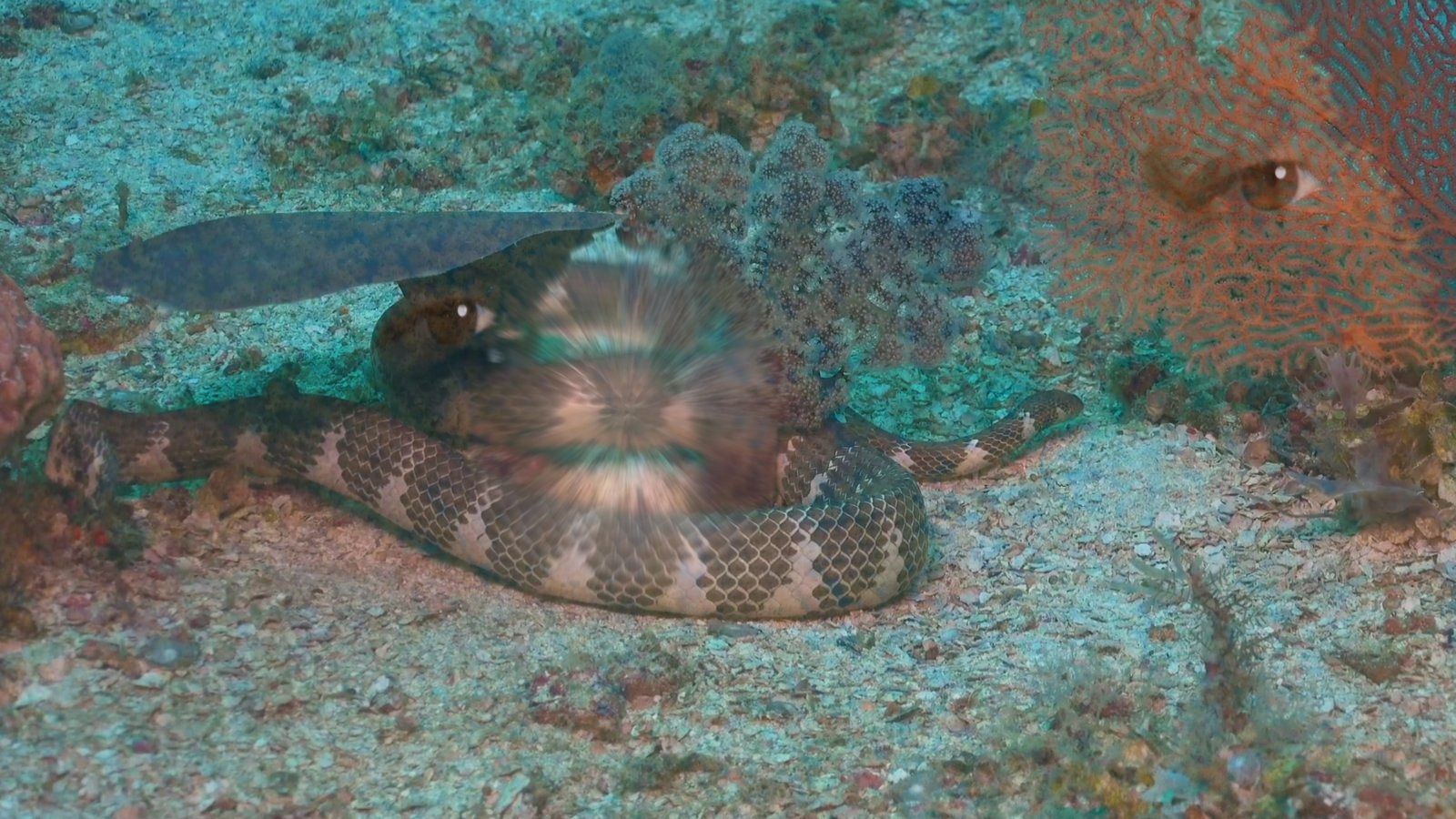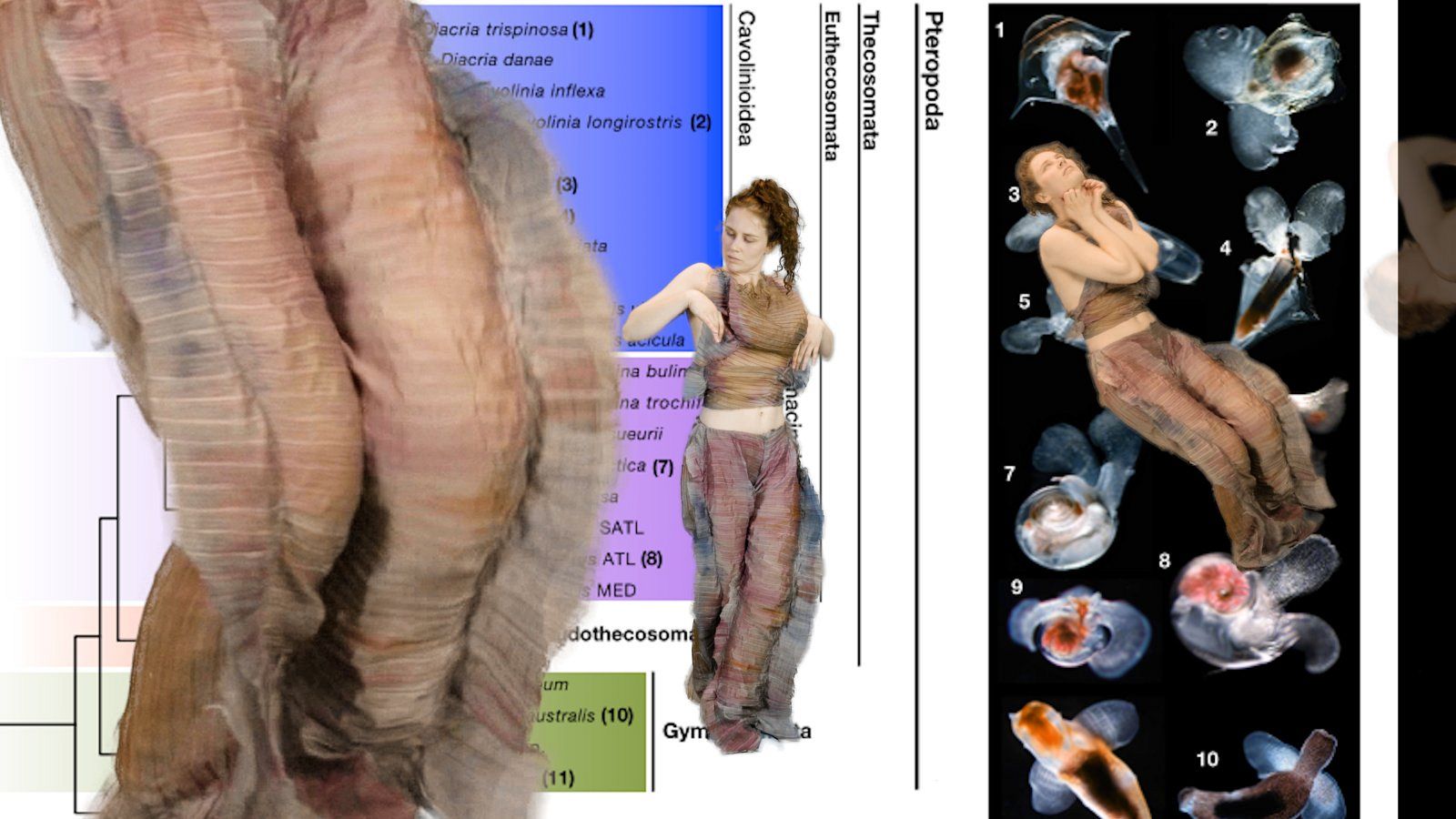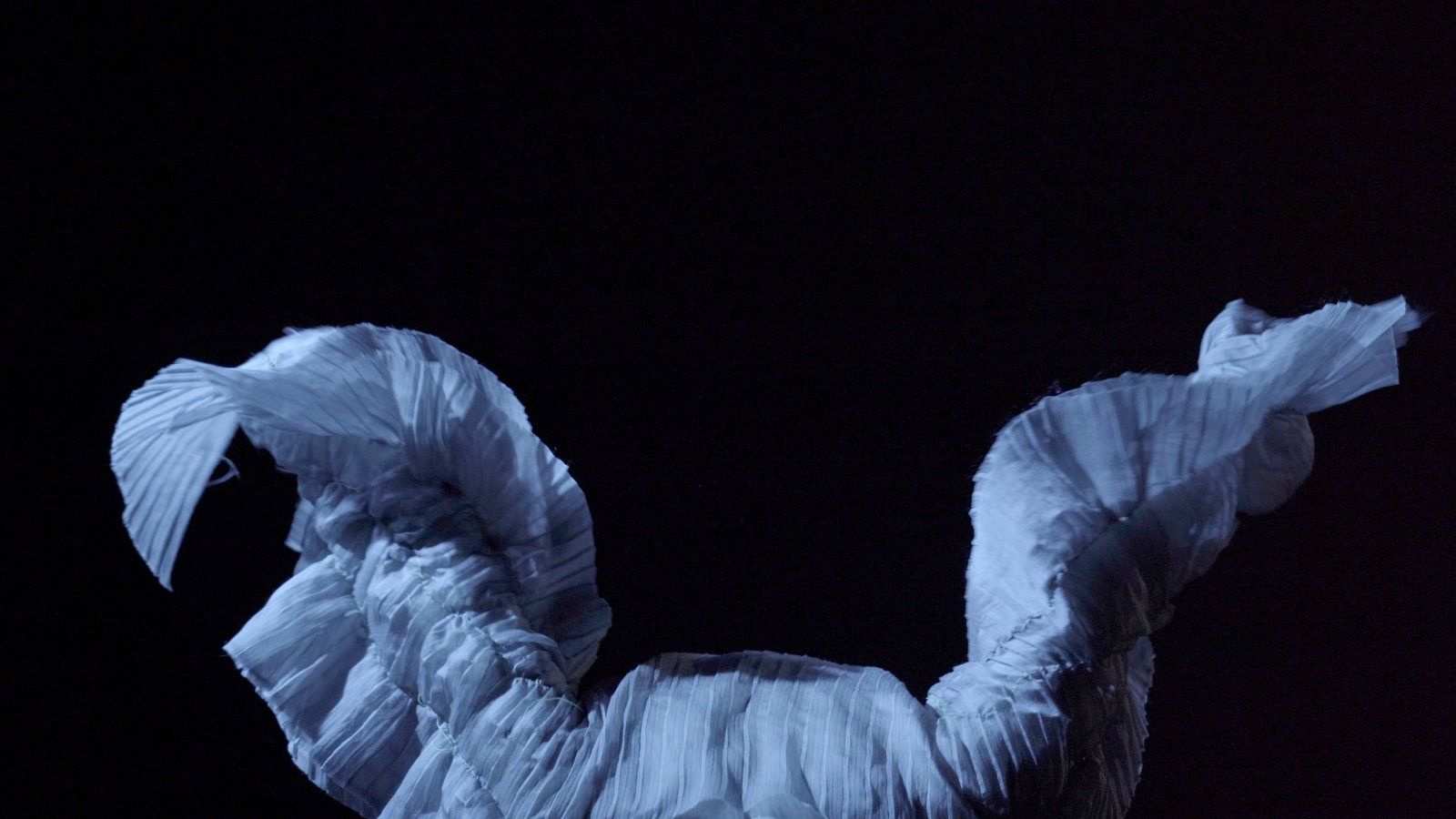
Esther van der Heijden
This short experimental film communicates a tale about a pteropod, a planktonic snail: The Great Drifter, The Shape Shifter. Pteropods are sensitive indicators of ocean acidification and high CO2 levels; their shell thickness gives us information about their resilience in the past and future. Pteropods play important roles in carbon fluxes in the open ocean, calcifying up to 89 precent of its waters. An embodied performance of the rapid and forced evolution of pteropods symbolizes what it takes to evolve, and questions how we relate to those having to adapt.
This bio-political tale invites the viewer into a close study of an oceanic creature to think through how climatic change is being lived. Through different characters, the narrator weaves together a broader context of oceanic injustices. How do vulnerability and elasticity come together when a hostile environment forces one change?



Oceanic Fiction: Towards Shifting Values
Thesis
My thesis examined the flows of power that undergird how we relate to the fast changing ocean and how fiction is used as a tool to counter or add to this by creating worlds that propose a shift in attitude and values.
In order to explore alternate worlds, chapter one; A Changing Ocean demonstrated the urge to relate differently. It examined the current problematic state of the ocean and a system that sustains it. It revealed a dominant relationship that relates to the ocean predominantly as a resource one can exploit. Furthermore, this chapter described how climate change, and socioeconomic- and climate inequality are interconnected. Though, world-systems are complex beasts, and this thesis is not aiming to provide a solution for these. Rather, I aimed to open up ways to imagine other worlds, hence I argue for a body of critical oceanic fiction.
Therefore, chapter two; Fictioning Oceanic Worlds, discussed narratives with alternate processes. Here I have dived into various meanings of the oceanic and into narrative styles particularly suitable for worlding worlds that counter the dominant-narrative. This chapter focused on stories with narrative arch’s bending towards justice, rather than mainstream novels concealing reality. Existing narratives on global warming and a changing ocean by non-Western authors should be more visible, for instance in (some to be decolonized) bookstores. Concludingly, this chapter functioned as a framework to examine Lagoon by Nnedi Okorafor (2016) and Tentacle by Rita Indiana (2018).
The third chapter; Collapsing Boundaries, functioned as a case-study, in which Lagoon and Tentacle exemplified that fiction can do the cultural work of broadening imagination. By actively reflecting on the current state of the ocean, Tentacle is a wakeup call in which reflection is inevitable. Lagoon imagines a collapsing of Western dichotomies and gives shape to a new form of collectivity. Both Lagoon and Tentacle uphold a shift in attitude.
I believe shifting towards an attitude open for plural worldviews will enhance necessary collective existence. It is not only a matter of relating; we are at stake to and with the ocean and each other. The switch towards an open attitude - a state wherein one can be affected and connected to what and to those that felt alien before - can form the first step towards a shift of values needed to transform problematic systems. Hence, a through fiction broadened imagination can impact what we research and how, what policies we adopt, with whom we interact, and through this it might change our values and our worlds.